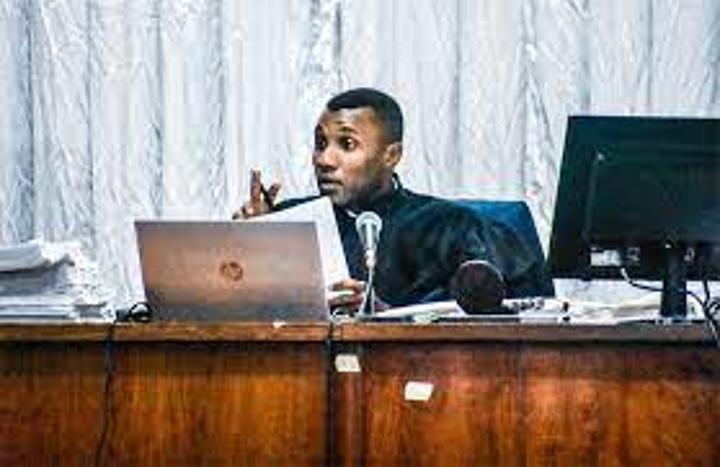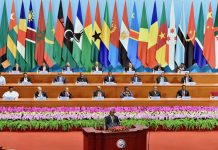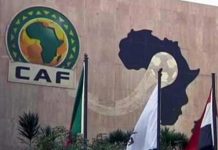Africa-Press – Mozambique. The Maputo City Court on Tuesday caught Gregorio Leao, the former head of the Security and Intelligence Service (SISE), in a blatant lie concerning whether Proindicus, one of the fraudulent companies set up as part of the scandal of Mozambique’s “hidden debts”, had ever been operational.
Last week, when he testified for four consecutive days, Leao had repeatedly claimed that Proindicus, a company that should have provided security for Mozambique’s Exclusive Economic Zone, had been doing its job correctly
“The resources had been acquired and were operational. We had complied with what we planned”, Leao claimed on Friday.
But on Tuesday, although the court should have moved on to the next of the accused, the former head of SISE Economic Intelligence, Antonio do Rosario, Judge Efigenio Baptista instead recalled Leao – for he had found in the trial records rr a letter, signed by Leao, which flatly contradicted this claim.
The letter was a request, sent to the then Finance Minister Manuel Chang, on 3 November 2014, asking for a state loan guarantee for a second company, Mozambique Asset Management (MAM) for 750 million dollars (even though the loan granted to MAM, by the Russian bank VTB, was only for 535 million dollars).
The guarantee was to be sent to Palomar Capital, effectively part of the Abu Dhabi based Privinvest group.
Palomar was rotten with corruption from the start, since it was set up by former Credit Suisse banker Andrew Pearse, in partnership with Privinvest founder Iskandar Safa.
At Credit Suisse, Pearse had worked on the Mozambican loans, and had pocketed millions of dollars in bribes from Privinvest. He admitted the bribes in a plea bargain with a New York court in 2019. There was thus a revolving door between Credit Suisse and Privinvest.
By the time of Leao’s November 2014 letter to Chang, the government had already issued guarantees to cover the 622 million dollar loan from Credit Suisse to Privinvest. A further guarantee was necessary, Leao wrote, because the assets were not operational – MAM was supposed to operate shipyards in Maputo and Pemba which would maintain the boats of Proindicus and of the third fraudulent company, Ematum (Mozambique Tuna Company).
The companies were not generating revenue, but the deadline of 31 March 2015 was fast approaching, by which time the first interest payment on the loans, for 90 million dollars, was due. A new guarantee was thus needed in order to avoid activation of the earlier guarantee, which would have “negative consequences”, Leao wrote.
The conclusion seemed inescapable – by the end of March 2015, when the first interest payment fell due, neither Proindicus nor MAM, were operational. So Leao’s claims last week were untrue.
Baptista asked Leao whether he now accepted that, at least by March 2015, Proindicus was not functioning. “You signed this letter”, he pointed out.
“I don’t know when it became operational”. Leao said.
“The prosecution says it was never operational”, retorted Baptista.
Leao then said the letter must be wrong because in 2015 Manuel Chang was no longer Finance Minister. True enough – but the letter was dated 3 November 2014, when Chang was still running the Finance Ministry. The government appointed by the new President, Filipe Nyusi (with Adriano Maleiane as Finance Minister), did not take office until January 2015.
Leao’s letter to Chang had cited “bureaucratic problems” in implementing the Proindicus concession on the maritime protection scheme. But what “bureaucratic problems” could these possibly be, Baptista asked, since the Proindicus concession agreement took effect on 2 November 2014, the day before the letter to Chang?
As for the new loan guarantee – did that mean Leao was willing to incur more debt, in order to pay off a previous debt? Leao had no answer to these questions.
Leao insisted that Baptista write into the trial minutes his claim that, in 2016, Nyusi, at a meeting of the Joint Command of the defence and security forces, had rejected an attempt to involve an unnamed foreign interest in coastal protection because he believed “the solution is that Proindicus must be made operational”.
He gave no details, and nobody has corroborated this story (which Leao repeated at several points in his testimony). If Nyusi did say this, the meeting must have taken place before April 2016, which was when the hidden debts became public knowledge, and Mozambique’s foreign partners, furious that they had been denied the truth about the country’s foreign debt, withdrew their support for the Mozambican state budget, plunging the country into a deep economic crisis.
Leao also defended SISE’s refusal to cooperate with Kroll, the independent company that audited Proindicus, Ematum and MAM in 2017. Just as he had said last week, Leao insisted that Kroll was “a foreign body” to which SISE could not hand over “classified information”.
But Kroll was hired to audit the companies, not by any foreign agency, but by the Mozambican Attorney-General’s Office (PGR), part of the same Mozambican state which SISE is sworn to defend.






